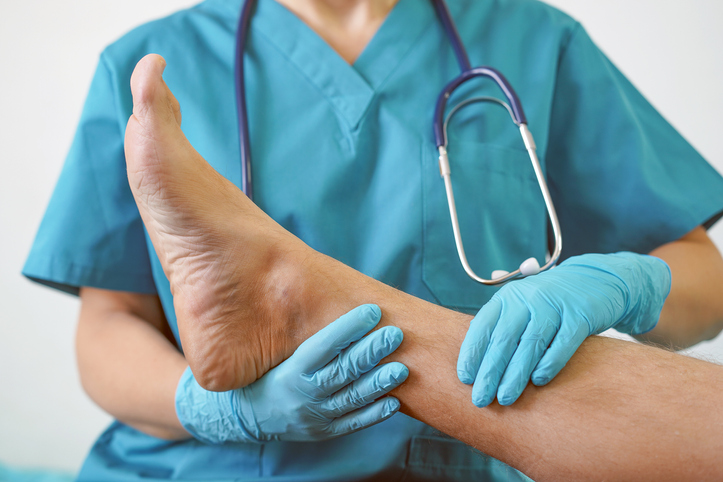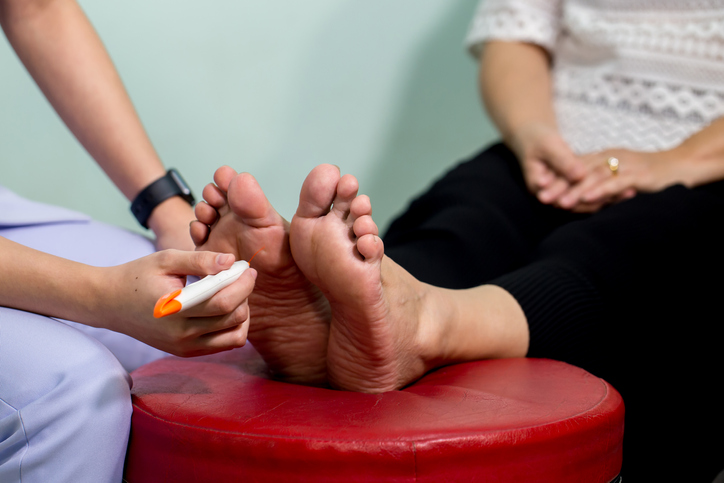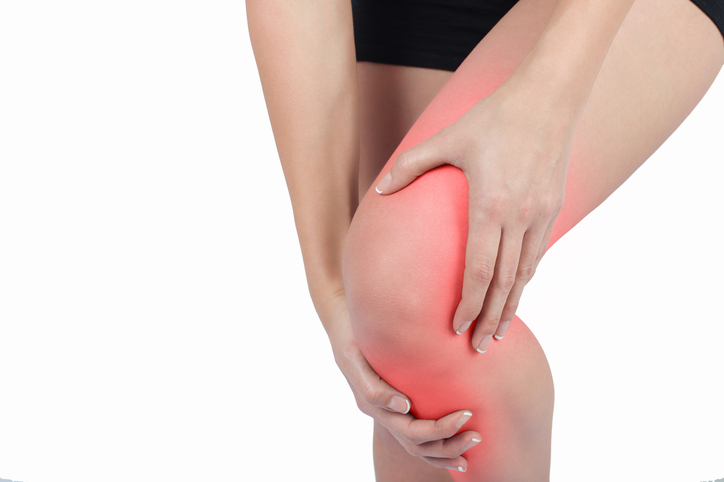Pain
When to See a Medical Professional for Foot Pain

The foot is made up of 26 bones that are connected by joints, muscles, tendons and ligaments. Since the foot carries all the body’s weight, it is susceptible to injuries and stress. Limited mobility can result from pain, inflammation or injury.
There are many types of foot pain that include pain in the heel, arch of the foot, sole, and toe. Foot pain can result from a variety of conditions. Most often, pain in the feet is from over using the muscle or from a non-serious injury, such as wearing ill-fitting or unsupportive footwear. However, foot pain may occur due to neuropathy, tendonitis, fracture, plantar fasciitis, gout, heel spurs, etc.
When to see a health care professional about foot pain
While the cause of foot pain may not be serious, the condition should be evaluated by a health care professional to obtain proper treatment methods. A medical appointment should be scheduled as soon as possible for the following:
- Burning sensation
- Discoloration or inflammation to painful area
- Foot pain persists more than three weeks
- Medical condition that interferes with blood flow
- Pain is sudden and severe
- Recent injury has occurred
- Swelling has not diminished after a week
- Weight cannot be placed on foot
Seek immediate medical attention
In certain situations, emergency medical treatment is needed. Seek immediate medical care for any of the following:
- Severe foot swelling
- Extreme pain
- Foot appears fractured or a bone is protruding
- Inability to walk on the foot
- An open wound that is oozing pus
- Presence of infection
- Fever over 100 degrees Fahrenheit (37.78 °C)
- Diagnosis of diabetes with a foot wound that is not healing
At-home foot pain treatment
Treatment options for foot pain will vary depending upon the cause. However, if foot pain is the result of overuse, at-home treatment can help. This includes the following:
- Apply cold compresses to the foot for 15 to 30 minutes at a time throughout the day.
- Rest the foot as much as possible to allow time for healing.
- Use over-the-counter anti-inflammatory medications, such as ibuprofen, to reduce inflammation and pain.
- Elevate the foot.

















